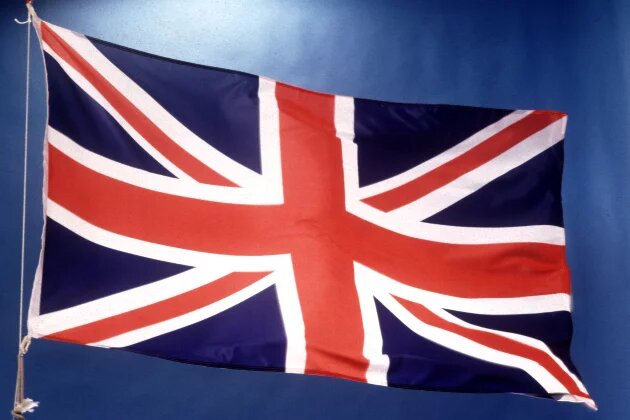

Gender-political situation in the United Kingdom
Legal situation:
- Equality and anti-discrimination laws
- Equality Act 2010
- Gender Equality Duty
- Laws on quotas, above all in the political and economic fields
- Other laws/statutory regulations
- Other government programmes
- Current political discourse
Protagonists:
Academia:
Brief description and evaluation
There is clear evidence that UK gender policy is influenced by EU legislation and/or the policy priorities set by the EU. This can be seen, for example, in the country’s currently revised gender equality and/or anti-discrimination legislation, in which a shift in priorities from gender equality to a concept of equality spanning all dimensions of discrimination is evident. This is manifested in the change in terminology (use of the word ‘equality’ instead of ‘gender’), but also institutionally, in the merging of previously self-contained laws and the institutions responsible for their implementation or monitoring (merger of government gender institutions with other anti-discrimination institutions). This is, above all, related to the fact that an immigration and/or multi-ethnic country such as the United Kingdom attaches great importance to diversity issues. The focal points are equality issues in employment and occupation as well as the work-life balance. Very much in keeping with the goals of the Lisbon Strategy, British equality policy is very economically driven: the country cannot do without a female labour force if it wants to be economically competitive.
The legal instruments of equality/anti-discrimination refer not only to individual rights but also to the institutional enforcement of equality and freedom from discrimination. British equality policy is geared to addressing the public and providing information. This is reflected in the instruments and methods that are used, such as campaigns, studies/analyses and commissions as well as flyers/guidelines for various target groups. British gender policy is heavily influenced by government and civil society actors. There are numerous women’s and equality NGOs. The “Equality and Diversity Forum” was recently established to bring various actors from different fields together and to enable discussion on the value of various equality dimensions and how they interrelate. Gender actors from civil society are integrated into governmental equality activities by virtue of commissions, forums/networks or public consultations; in other words, state equality policy is geared towards participation.
The key governmental actor in equality issues, which also performs the task of integrating NGOs and experts, is the Equality and Human Rights Commission (EHRC). Together with the trade unions, the EHRC’s predecessor, the Equal Opportunities Commissions, played a role in the United Kingdom abandoning its foot-dragging role with respect to EU equality policy in the 1990s and converting EU equality directives into national law faster and to a wider extent. The EHCR and the Government Equality Office (GEO) are also instrumental in modernising the equality law that was revised and renewed as part of a comprehensive public consultation process. Its implementation and implementation monitoring are likely to form a main focus of equality policy in the coming years.
Legal situation
Equality and anti-discrimination laws
Sex Discrimination Act (1975)
Equal Pay Act (1975)
Equality Act 2010
The Equality Act 2010 is a modernised and harmonised version of previous equality and anti-discrimination legislation. The aims of the law reforms were: to identify inconsistencies in current anti-discrimination laws, to develop simpler, clearer and “more user-friendly” regulations, to identify the causes of inequality and discrimination, and to strengthen the age and gender aspects constituting discrimination. Following a consultation process involving advocacy groups and experts spanning several years, the Equality Act was passed by parliament in April 2009 and is now in the process of being phased in since 1 October 2010. A phase-in approach was chosen to allow all concerned sufficient preparation to take the amendments into account. Its predecessor was the Equality Act, which was passed in 2005 and had been in force since 2007.
- Further information
- Final reports of the Equalities Review: “Fairness and Freedom: The Final Report of the Equalities Review” (Feb. 2007)
Gender Equality Duty
Came into force in April 2007, based on the 2006 Equality Act, geared towards existing race and disability duties; commits all public institutions to actively promote gender equality and to take measures against sexual discrimination and harassment; builds on the experience that the existing statutory regulations – which enabled individuals to bring lawsuits (Sex Discrimination and Equal Pay Act von 1975) – had not led to the desired fall in discrimination; influences policy development and public services in, for example, transport, recruitment practice, flexible working time.
Laws on quotas, above all in the political and economic fields.
No statutory, but a voluntary quota within political parties (Labour Party, Liberal Democrats). Quota regulations rejected for the private sector.
Other laws/statutory regulations
Equality PSA (Public Service Agreement):
In the PSA, the government has set out its priorities for the period 2008-2011. PSA 15 is the so-called Equality PSA. It defines the goals for combating discrimination and promoting equality: reduction in pay inequalities, increase in the independence of disabled people, combating inequalities in social participation, combating employment-based discrimination, raise understanding of unequal treatment and improve the means of action to combat this.
- Delivering the Equality PSA (PDF, 16 pages, 618 KB)
Equality Strategy - Building a Fairer Britain[b1]
Building on a feasibility study and a consultation process involving a variety of advocacy groups, a coordinated draft has now materialised for a national Equality Strategy - Building a Fairer Britain. The aim of this plan is to establish a national standard that calls on and helps companies to implement and monitor their gender equality duties. The plan is founded on the principles of voluntariness, the propagation of best practices, stakeholder involvement, feasible implementation for all types of companies, and process orientation. No statements have been made as to when the plan should come into force.
- “Working for Lesbian, Gay, Bisexual and Transgender Equality”, 2010 (PDF, 4 pages, 536 KB)
- “Together We Can End Violence against Women and Girls” (2009)
Current political discourse
It is striking that the issue of gender equality is always broached in the context of other equality dimensions and that, in doing so, the emphasis is not (no longer?) placed on the gender dimension. This shift in attention can also be seen in the renaming of certain institutions where ‘gender’ has given way to the words ‘equality’ and/or ‘diversity’. This is most apparent in legislation. Overall, the regulation of equality and/or anti-discrimination in law is of crucial importance in the United Kingdom.
The focus of British equality policy, especially on the side of the government, lies on the economic and social participation and/or integration of women. The pay gap and equality in the business sector play a vital role in this context. The work-life balance is not the same prevalent factor in the debate that it once used to be. Women from ethnic minorities and domestic violence are also very prominent issues in the debate. It is striking to note how much more intensely the United Kingdom deals with the issues of same-sex lifestyles and transgender/intersex, both in the civil service through the organisation (a:gender) and in the private sector (corresponding government guidelines for firms) and their institutional representation (e.g. NGO: Press for Change).
Protagonists
NGOs: Political parties, civil society organisations
The UK Joint Committee On Women (UKJCW):
Is a network comprising four sister organisations from across the United Kingdom: Engender – Network of Women’s Organisations (Scotland), Northern Ireland Women’s European Platform (NIWEP), Wales Women’s European Network (WWEN) and the National Alliance of Women’s Organisations (NAWO) (England). It was set up to represent a coordinated view of UK interests with respect to the European Women’s Lobby (EWL) and seeks to provide a forum for a nationwide exchange of views and opinions among women’s organisations.
National Alliance Of Women’s Organisations (NAWO):
Founded in 1989; umbrella organisation for approx. 100 organisations and individuals (from England) that focuses on women’s rights and equality; caters to women’s organisations campaigning across a wide range of issues and specialist women’s organisations; aims: participation and representation of women, gender mainstreaming, implementation of the Beijing Platform for Action and other international agreements, improvement of government equality policy; member of the EWL
National Federation Of Women’s Institutes (NFWI):
With 215,000 members the largest women’s organisation in England, Wales and the Islands; founded in 1915; originally only active in rural communities focusing on food/nutrition, before then broadening its geographical reach and range of issues; separate regional women’s institutes all under the umbrella of the national federation; goals: empowerment, education and greater social involvement of women; campaigns covering the issues of agriculture, environmental protection, climate change, health, food, consumer protection, fair trade, violence against women/women trafficking; own magazine, own college
The Fawcett Society:
Fawcett is one of the United Kingdom’s leading women’s organisations for the economic equality of women. It owes its name to Millicent Garrett Fawcett, who, in 1866, began her political work campaigning for women’s suffrage. Its goal is to raise the representation of women and their interests in public and political life. Fawcett focuses especially on achieving equality in the areas of pay, pensions, and appreciation of the care work they provide. Fawcett is also very committed to the cause of gender budgeting (e.g. study on gender (in)equality in budgetary cuts resulting from the economic and financial crisis).
The Equality And Diversity Forum:
“The EDF is a network of national organisations committed to equal opportunities, social justice, good community relations, respect for human rights and an end to discrimination based on age, disability, gender and gender identity, race, religion or belief, and sexual orientation.” Its aims and tasks are to: to gather and exchange information on equality and human rights; forum for organisations to exchange views and to network; to strengthen a multiple perspective; lobby work; research and further education. EDF is/was represented in various government and parliamentary consultation bodies addressing equality issues. It also conducts the affairs of the parliamentary all-party group for equality. Funded by the EU (PROGRESS), Joseph Rowntree Charitable Trust, Barrow Cadbury Trust, Trust for London, the Diana Princess of Wales Memorial Fund, Department for Communities and Local Government.
Engender:
Engender has approx. 300 members and works “on an anti-sexist agenda in Scotland and Europe to increase women’s power and influence and make visible the impact of sexism on women, men and society. Information, research and networking are Engender’s main fields of activity. Current issues and campaigns: Equality Bill, poverty, violence against women, power and participation, European and international women’s policy, further education/events, gender audit, policy consultations, equality counting, and much more.”
Scottish Women’s Convention:
Was set up as an independent organisation in 2003 by the Scottish Executive, which also provides the funding. Its aim is to ensure that women’s interests find representation in the political process in Scotland and to raise their level of influence. Activities: work groups on specific policies (e.g. equal pay, poverty among women), round table discussions, consultations, reports, publications (e.g. the Equal Pay Guide).
Wales Women’s National Coalition (WWNC):
Was, from 1990 to 2010 (from 2002 onwards as a limited company), the umbrella organisation for women’s organisations in civil society in Wales (representing approx. 750,000 women). Its goals were to improve the living circumstances of women (main focus: political participation, domestic violence, women’s poverty); ceased to exist in the summer of 2010 due to a lack of funding.
Northern Ireland Women’s European Platform:
Approx. 100 members (organisations and individuals); works at local (networking among women’s organisations, exchange of information and experience, lobbying regional government policy), European (EWL, official EU institutions) and international level (UN, CEDAW, CSW); subnetwork: Older Women’s Network Northern Ireland (member of the European Older Women’s Network); focuses on European and international women’s policy (women’s rights, domestic violence).
Opportunity Now:
Opportunity Now is the only NGO in the United Kingdom that represents employers whose goal is to transform their companies by raising both women’s involvement and their participation in the economy overall. The organisation provides information and advice and shares best practice examples to help companies and their employees accomplish such a change process. With 330 members, Opportunity Now is one of the UK’s leading organisations for employment diversity. Activities: bestows an annual equality award; own equality academy; single-issue workshops (e.g. on equal pay), and similar.
Chwarae Teg/Fair Play:
Chwarae Teg sees its role as an organisation for women and employment innovation. With 15 years of experience, Fair Play champions the economic development of women in Wales. Its goal is to use education, entrepreneurship, the work-life balance and flexible working schemes to raise women’s participation in the business sector. Companies and individuals receive practical support from Fair Play (i.e. advice, training, access to funding, etc.) to allow them to implement change.
Aside from the aforementioned actors, women’s organisations exist in all national parties.
Government, ministries
Minister(s) For Women And Equalities:
This function is performed by ministers already in the cabinet (currently: the Home Secretary) and a parliamentary under-secretary of state.
Government Equalities Office (GEO):
Since 2007, the tasks fulfilled by the now-defunct Women & Equality Unit have been integrated into the new, more comprehensive Government Equalities Office. The GEO is a small governmental institution with a staff of just over 100, which within the government holds responsibility for the equality strategy and legislation. It is responsible for equality issues relating to women/gender, sexual orientation and transgender. With respect to gender issues, it is especially vested with the task of integrating equality policy into every area of government policy and of implementing international commitments in this field (e.g. CEDAW, Beijing Platform for Action, EU Roadmap).
Tasks: Equality Act 2010, equality for lesbians, gays, bisexuals and transgender people, women and work, violence against women, representation in public life, Equality Strategy - Building a Fairer Britain,Women Councillor’s Taskforce.
Equality And Human Rights Commission (EHRC):
Established in 2007 on the basis of the Equality Act 2006, the EHRC’s aims are to bring a new, integrative approach to the promotion of equality and human rights and to more effectively implement the anti-discrimination laws. To accomplish this, a variety of previously self-contained commissions (the racial equality, equal opportunities (since 1976) and disability rights commissions) were merged. The EHRC is furthermore responsible for discrimination matters which had not previously had any institutional representation, i.e. sexual orientation, age, religion/ideology, and, in general, for all human rights matters (based on the Human Rights Act). The EHRC is an independent commission though it receives funding through the government.
Women’s National Commission:
The Women’s National Commission (WNC) was founded in 1969 with the aim of advising the government on issues relating to women’s policy. It is an independent public body but is funded by the GEO. The Commission is the main voice of women and/or women’s organisations in the United Kingdom and facilitates dialogue between them and the government. Currently, the Commission represents over 550 women’s organisations from across the UK. Fields of work: violence against women, equality (esp. current changes to equality legislation), international women’s politics, migration and asylum, minority ethnic women, women in public life.
Senior Stakeholder Group:
Assists the government with the creation of an equality system for the United Kingdom by advising the Government Equality Office (GEO) and the responsible minister. Its goal is to strengthen and modernise equality laws and equality policy. The group is made up of representatives from across the entire range of gender policy and also includes representatives from trade unions and the business associations as well as the EHRC.
Ethnic Minority Women Councillors’ Taskforce:
In order to raise the political representation of black, Asian and other minority ethnic women (BAME women), a cross-party BAME Women Councillors’ Taskforce was established from May 2008 until June 2009. The Taskforce has developed various instruments to encourage BAME women to engage in politics and represent their communities, e.g. a mentoring programme, certified community leadership training. To accomplish this, it has worked very closely with the political parties. The funding of the Taskforce and/or the projects comes from the GEO. An evaluation report on the work of the Taskforce is scheduled for publication in 2010.
Academia
Equality and Diversity Research Network
The aim of the Equality and Diversity Research Network at the Centre for Local Policy Studies at Edge Hill University is to raise the interdisciplinary perspective in equality research in politics and practice. It includes the disciplines sociology, law, governance and politics, organisation and management, community studies, research methods. The aim of the network is to create new opportunities for collective research and publications and to enable dialogue between the scientific/academic community and practitioners.
The Equality Research Network of the same name, which was set up by the government in 2001 as a gender research forum (Women and Equality Unit) to increase dialogue between researchers, trade unions, NGOs and politicians on gender and, through later development, diversity issues, does not appear to exist any longer. To what extent the new network can be seen as its successor cannot be discerned from the information it provides about itself.
Gender Studies
Gender studies are offered at many UK universities (approx. 30 institutes, across the country, including at Oxford, Cambridge, LSE).
Sources
Description of state of source material:
Good source material in terms of government and civil society actors; extensive information available on the internet, including numerous possibilities to download studies, reports, etc.; good linking between websites referencing the different actors (also makes their non-virtual networking evident); detailed information, esp. on legal regulations on equality/anti-discrimination.
Citing of relevant sources:
References to sources: see direct reference on each of the above-mentioned actors.
Websites:
EHRC and GEO: very detailed and informative, well organised by individual topics, extensive supplementary/in-depth material (studies, reports, campaign material, literature lists, etc.); not just information on own organisation, but also on other actors; good use of links to websites.
Literature:
Sifft, Stefanie 2003: Pushing for Europeanisation: How British Feminists Link with the EU to Promote Parental Rights. In: Liebert, Ulrike (editor): Gendering Europeanisation. Pp. 149-186
This study was conducted by Tanja Berger und Pamela Dorsch and comissioned by the Gunda Werner Institute of the Heinrich Böll Foundation in 2010.
All images, except marked otherwise Public Domain CC0

